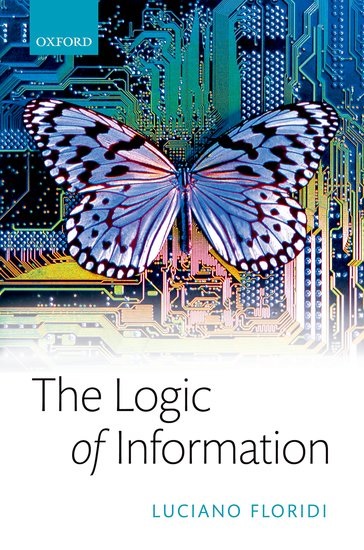About
He is the OII’s Professor of Philosophy and Ethics of Information at the University of Oxford, where he is also the Director of the Digital Ethics Lab of the Oxford Internet Institute. Still in Oxford, he is Distinguished Research Fellow of the Uehiro Centre for Practical Ethics of the Faculty of Philosophy, and Research Associate and Fellow in Information Policy of the Department of Computer Science. Outside Oxford, he is Faculty Fellow of the Alan Turing Institute (the national institute for data science) and Chair of its Data Ethics Group; and Adjunct Professor (“Distinguished Scholar in Residence”) of the Department of Economics, American University, Washington D.C.
His research concerns primarily Information and Computer Ethics (aka Digital Ethics), the Philosophy of Information, and the Philosophy of Technology. Other research interests include Epistemology, Philosophy of Logic, and the History and Philosophy of Scepticism. He has published over a 150 papers in these areas, in many anthologies and peer-reviewed journals. His works have been translated into many languages, including Arabic, Chinese, Dutch, French, German, Greek, Hungarian, Italian, Japanese, Lithuanian, Persian, Polish, Portuguese, Russian, and Spanish.
His lifetime project is a tetralogy (not his term) on the foundation of the philosophy of information, called Principia Philosophiae Informationis.
His most recent books are: The Fourth Revolution – How the infosphere is reshaping human reality (Oxford University Press, 2014); The Ethics of Information (Oxford University Press, 2013, volume two of the tetralogy ); The Philosophy of Information (Oxford University Press, 2011, volume one of the tetralogy); Information – A Very Short Introduction (Oxford University Press, 2010). He has edited many volumes, including The Blackwell Guide to the Philosophy of Computing and Information (Wiley-Blackwell, 2003); The Cambridge Handbook of Information and Computer Ethics (Cambridge University Press, 2010); and The Routledge Handbook of Philosophy of Information (Routledge, 2016).
His previous books include Scepticism and the Foundation of Epistemology – A Study in the Metalogical Fallacies (Brill, 1996); Internet – An Epistemological Essay (Il Saggiatore, 1997); Philosophy and Computing: An Introduction (Routledge, 1999); and Sextus Empiricus, The Recovery and Transmission of Pyrrhonism (Oxford University Press, 2002).
He was born in Rome in 1964. He was educated at Rome University La Sapienza, where he graduated in philosophy (laurea) in 1988, first class with distinction, after serving in the army (compulsory). His MPhil (1989; originally a one-year MA, the two-year MPhil was awarded in recognition of the quality of the thesis) and PhD (1990) are both in philosophy, from the University of Warwick. He worked on philosophical logic as a graduate student with Susan Haack (Warwick) then as a postdoc with Michael Dummett (Oxford).
He was lecturer in philosophy at the University of Warwick in 1990-1. He joined the Faculty of Philosophy of the University of Oxford in 1990 and then the Department of Computer Science in 1999. He was Junior Research Fellow (JRF = postdoc) in Philosophy at Wolfson College, University of Oxford in 1990-4. Later, he was Francis Yates Fellow in the History of Ideas at the Warburg Institute, University of London in 1994–95, and Research Fellow in Philosophy at Wolfson College in 1994-2001. During these years in Oxford, he held several lecturerships in different Colleges and taught a variety of subjects, from Ancient Philosophy to Wittgenstein and Mathematical Logic. Between 1994 and 1996, he also held a post-doctoral research scholarship at the Department of Philosophy, Università degli Studi di Torino. Between 2001 and 2006, he was Markle Foundation Senior Research Fellow in Information Policy at the Programme in Comparative Media Law and Policy, University of Oxford. Between 2002 and 2008, he was Associate Professor of Logic (tenure) at the Università degli Studi di Bari. Between 2009 and 2014, he was Professor of Philosophy at the University of Hertfordshire, where he held the UNESCO Chair in Information and Computer Ethics. Between 2006 and 2017, he was Fellow by Special Election of St Cross College.
Between 2006 and 2010, he was President of IACAP (International Association for Computing And Philosophy). In 2009, he became the first philosopher to be elected Gauss Professor by the Göttingen Academy of Sciences. Still in 2009, he was awarded the Barwise Prize by the American Philosophical Association in recognition of his research on the philosophy of information, and was elected Fellow of the Society for the Study of Artificial Intelligence and the Simulation of Behaviour. In 2010, he was appointed Editor-in-Chief of Springer’s new journal Philosophy & Technology and elected Fellow of the Center for Information Policy Research, University of Wisconsin–Milwaukee. In 2011, he was awarded a laurea honoris causa by the University of Suceava, Romania, for his research on the philosophy of information.
In 2012, he was appointed Chairman of the expert group, organised by the DG INFSO of the European Commission, on the impact of information and communication technologies on the digital transformations occurring in the European society. Still in 2012, he was the recipient of the Covey Award, by the International Association for Computing and Philosophy, for “outstanding research in philosophy and computing”. He was then the recipient of the Weizenbaum Award for 2013 for his “significant contribution to the field of information and computer ethics, through his research, service, and vision” (the Award is given every two years by the International Society for Ethics and Information Technology). Still in 2013, he was elected Fellow of the British Computer Society (FBCS) and Member of the Académie Internationale de Philosophie des Sciences (MAIPS). In 2014, he awarded a Cátedras de Excelencia by the University Carlos III of Madrid (UC3M) for his work on the philosophy and ethics of information. In 2015, he was elected Fernand Braudel Senior Fellow of the European University Institute. In 2016, he received the Copernicus Scientist Award by the Institute of Advanced Studies of the University of Ferrara. He also received the J. Ong Award by the Media Ecology Association for my book The Fourth Revolution; and the Malpensa Prize, by the city of Guarcino, Italy. In 2017, he was elected Fellow of the Academy of Social Sciences.
Floridi is deeply engaged with emerging policy initiatives on the socio-ethical value and implications of digital technologies and their applications. And he has worked closely on digital ethics (including the ethics of algorithms and AI) with the European Commission, the German Ethics Council, and, in the UK, with the House of Lords, the Cabinet Office, and the Information Commissioner’s Office, as well as with multinational corporations (e.g. Cisco, Google, IBM, Microsoft, and Tencent). Currently, he is a Member of the EU’s Ethics Advisory Group on Ethical Dimensions of Data Protection, of the Royal Society and British Academy Working Group on Data Policy, of Google Advisory Board on “the right to be forgotten”, of the Advisory Board of Tencent’s Internet and Society Institute, and of NEXA’ Board of Trustees. He is the Chairman of the Ethics Advisory Board of the European Medical Information Framework (a €56 million EU project on medical informatics).
In the past, he was Co-chairman of the Ethics in Data Science Working Group, British Cabinet Office, Chairman of the European Commission’s project The Onlife Initiative – rethinking public spaces in the digital transition, on which the call ‘ICT 31-2014: Human-centric Digital Age’ within Horizon 2020 is based (the outcome of the project, The Onlife Manifesto, is open access and freely available online). He was a member of the Ethics Strategic Panel of the British Computer Society (2010-2013), responsible for reviewing the national Code of Conduct for IT professionals. He co-authored the UNESCO Code of Ethics for the Information Society (UNESCO Information for All Programme 2009), in view of developing a UNESCO Declaration to be submitted to the General Conference.
From July 2023, Professor Floridi will be the new Founding Director of the Digital Ethics Center at Yale University, where he is also a Professor in the Cognitive Science Program.
Areas of Interest for Doctoral Supervision
Philosophy, activism, big data, censorship, cultural industries, ethics, governance, inequality, innovation, open data, power, privacy, security, social media, surveillance, trust
Research Interests
Digital Ethics, Ethics of AI, Information and Computer Ethics, Philosophy of Information, Philosophy of Technology

















